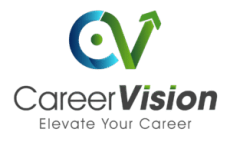Picture this: you’re in a meeting, and the news hits you like a ton of bricks – layoffs are coming. Panic sets in, and your mind races to worst-case scenarios. Sound familiar? For mid-career professionals, navigating the wild waters of career challenges can feel like trying to ride a bull. But what if I told you that the key to staying on that bull lies in your mindset? Embracing a growth mindset is your best defense against career setbacks. It’s about shifting perspectives, adapting to changes, and turning obstacles into stepping stones. Let’s dive into how you can cultivate this mindset and build the resilience needed to thrive.
Understanding the Growth Mindset
At its core, a growth mindset is the belief that abilities and intelligence can be developed through dedication and hard work. It’s like realizing that your career isn’t a straight line but rather an intricate web of experiences, failures, and successes. In my time as a product leader, I’ve seen firsthand how a growth mindset can transform not just individual careers but whole teams. When I transitioned to a new role, I faced numerous challenges. Instead of viewing each obstacle as a dead end, I learned to see them as opportunities for growth. This shift was pivotal in my journey. For more insights on career transitions, check out From Passion to Profession: Navigating Your Career Pivot with Purpose. You can also learn more about cultivating a growth mindset for career resilience from Klara Futura.
The Power of Adaptability
Adaptability is the name of the game. In a world where the only constant is change, being flexible and open to new ideas can make all the difference. Think of it this way: when life throws you lemons, don’t just make lemonade—open a lemon stand! Embrace the uncertainty that comes with career changes. Maybe you’re considering a shift to a new industry or a completely different role. Recognize that the skills you’ve honed in your current position are transferable. For instance, my experience in product management helped me pivot to coaching, where I now guide others through their career challenges. The adaptability I developed served as my lifeline. You can read more about adapting your strategies in Shifting Gears: Adapting Your Job Search Strategy for Remote Opportunities. To explore why adaptability is crucial for career success, check out this article on EuroMaTech.
Learning from Setbacks
Let’s bust the myth that successful people don’t fail. They do, and they learn from it. Think of failure as a buffet—take what you need and leave the rest. When I faced setbacks in my career, I learned to dissect what went wrong instead of wallowing in self-pity. Each failure became a lesson. Did I misjudge a market trend? I took notes and adjusted my future strategies. This mindset shift allowed me to turn potential career-ending moments into invaluable learning experiences. Remember, it’s not about how hard you fall; it’s about how you get back up and what you learn along the way. For strategies on learning from failures, see Redefining Failure: How Embracing Setbacks Can Propel Your Career Forward. For more insights on managing career setbacks, visit Intuitive Careers.
Fostering a Proactive Approach
Waiting for opportunities to come to you is like hoping a pizza will show up at your door without ordering it. Instead, take charge of your career development. Seek mentorship, enroll in courses, or network with professionals in your desired field. I often tell my clients, “Your network is your net worth.” Engage in conversations that can lead to new opportunities. Attend workshops, join industry groups, and don’t hesitate to reach out to someone whose career path you admire. You never know where a simple conversation might lead. For more on networking, explore Networking Through Volunteering: Building Connections While Making a Difference.
Embracing Continuous Learning
In today’s fast-paced work environment, continuous learning isn’t just a nice-to-have. It’s a necessity. Keep your skills sharp and stay updated on industry trends. Invest time in personal development, and don’t shy away from stepping outside your comfort zone. I remember taking a coding boot camp when transitioning from product management to tech coaching. It was tough, but it broadened my skill set and made me a better resource for my clients. Embrace the discomfort of learning; it’s a sign you’re growing. To enhance your resume through continuous learning, you might find value in Elevate Your Resume with Creative Formatting Techniques.
Building resilience in your career isn’t about avoiding challenges; it’s about embracing them. By cultivating a growth mindset, adapting to changes, learning from setbacks, and taking proactive steps, you will not only survive but thrive in your career journey.
Ready to shift your perspective? Let’s talk strategy, mindset, and next steps. Book a free intro call – get another perspective on your search.

